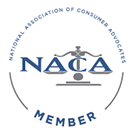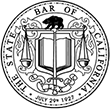“I will highly recommend Mr. Boris Davidovskiy. He had provided excellent service in Real estate and banking issues. Always easy to reach; quick response to all my emails and calls; his professional skill beyond expectations.”

Mountlake Terrace Consumer Rights Attorney
Our phones are bombarded with calls, and a large number come from scammers and telemarketers. According to the FCC, unwanted calls, including robocalls and texts, are consistently among the top problems consumers cite when filing complaints with the FCC each year.
You Have Rights as a Consumer Under The TCPA
Have you received an illegal call, text or fax? Fortunately, under the Telephone Consumer Protection Act (“TCPA”), recipients of certain types of unsolicited phone calls, faxes, and text messages can file a lawsuit and to recover up to $1,500 per violation. The TCPA was passed into law in 1991. The TCPA regulates telemarketing calls, auto-dialed calls, prerecorded calls, text messages, and unsolicited faxes. It also is the authority to create the National Do-Not-Call List. The Federal Communications Commission (“FCC”) is empowered to issue rules and regulations implementing the TCPA. After the TCPA was passed into law, the FCC issued rules and regulations implementing the TCPA.
The TCPA deals with several distinct issues, including:
- Use of automated dialing equipment and prerecorded messages;
- Telemarketing calls using “live” callers; and
- Facsimile (fax) transmissions.
Under the TCPA, telemarketers, debt collectors, and other companies contacting you must abide by a strict code of conduct. In general, no one is allowed to call your cell phone using an automated dialer or artificial or pre-recorded voice messages, unless you have given them express permission. Nor are telemarketers and advertisers permitted to call a residential telephone number on the national do-not-call registry or to call any residential telephone subscriber before the hour of 8 a.m. or after 9 p.m. (local time).
The same concept applies to text messages. Any text message sent to your cell phone using an automated dialer without your express prior consent permission violates the TCPA.
- Under the TCPA, each call and text allows you to sue the caller for $500; and
- If the caller knowingly violated the TCPA, you can sue for up to $1,500 for each call and text.
If the caller correctly claims that you gave them permission to call you, you have the right to revoke your permission and to tell them to stop calling. Even if you gave the prior permission in writing, once you tell them to stop calling–even if you do so orally–any future calls would violate the TCPA.
Importantly, the FCC has determined that debt collection calls are not telemarketing calls. Accordingly, as for autodialed or prerecorded debt collection calls, to the extent that they do not contain telemarketing messages, they would not require any consent when made to residential wireline consumers. But, they would require either prior written or oral consent if made to a consumer’s wireless number.
There’s no out of pocket cost to the clients because Law Office of Boris Davidovskiy, P.C. works on a contingency basis. In other words, the law firm does not get paid unless the client wins. Depending on the details of the case, either the harassing caller will pay the firm’s fees directly, or Law Office of Boris Davidovskiy, P.C will retain a fraction of the monetary settlement recovered on the client’s behalf.
Contact a Mountlake Terrace Consumer Rights Attorney
To learn more about your legal options, contact our office for a consultation. Representing clients in Washington and California, we are here to help.








